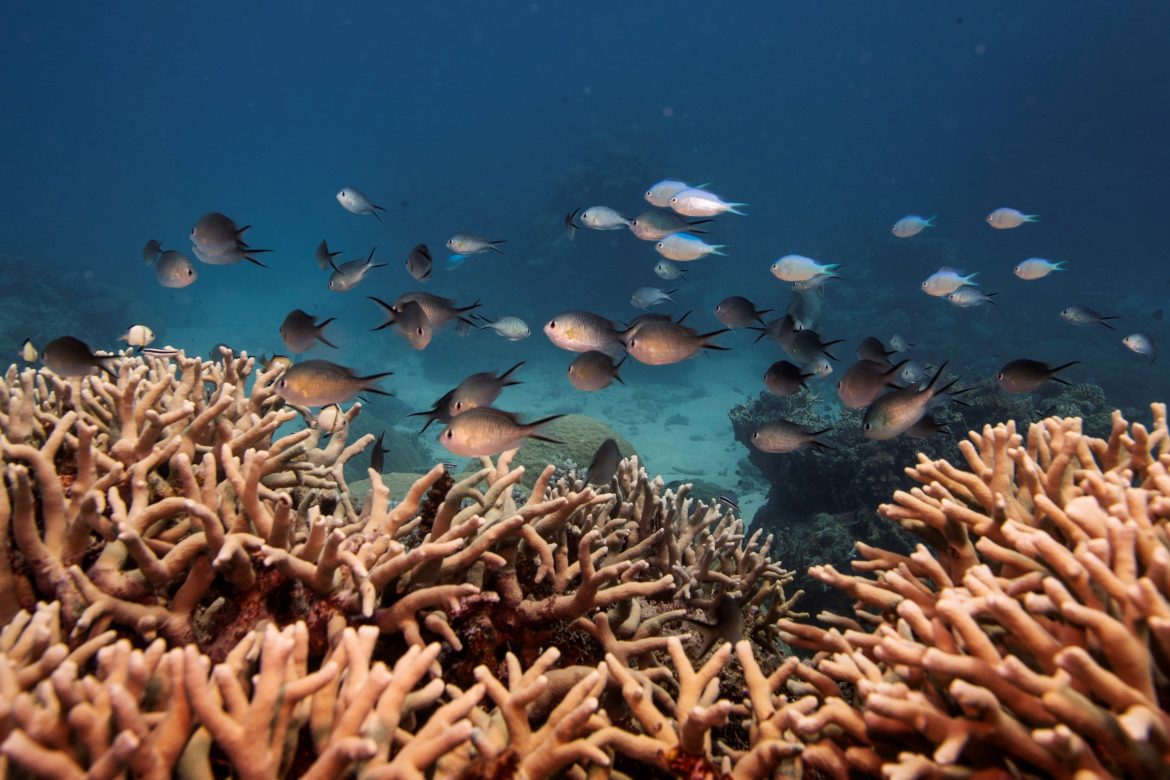A United Nations report has confirmed that two scientists will embark on a monitoring trip to Queensland later in March as forecasts suggest the risk of widespread coral bleaching will be at its highest.
Recall that the Great Barrier Reef Marine Park Authority reported late last week that “low to moderate bleaching” had already been reported in many areas.
The journey which was requested by the Morrison government is expected to last for 10 days and could coincide with the reef being at risk of widespread bleaching. Unesco said the visit was confirmed by letter to the Australian government on 21 February, but there had been no official announcement of the visit.
Environment groups have said that while they were not aware of any details of the travel plans, it was vital the scientists were allowed to see any bleaching for themselves.
Read also: Report shows 1.5C achievable with carbon dioxide removal from air
According to the reef authority, significant heat stress had accumulated in some parts of the far north of the reef, as well as between Townsville and Rockhampton.
“The Bureau of Meteorology is forecasting sea surface temperatures to remain above average throughout most of the marine park in the coming weeks,” the authority said.
According to reports, the 2,300km reef has seen five mass bleaching events – in 1998, 2002, 2016, 2017 and 2020 – all caused by rising ocean temperatures driven by global heating.
While Corals can recover from mild bleaching if cooler conditions return quickly, Coral cover over the reef has risen in the last 18 months after benign conditions.
But the Australian Institute of Marine Science has said this recovery is dominated by fast-growing corals susceptible to bleaching.
In his reaction, Dr William Skirving, of Noaa’s Coral Reef Watch, said the accumulation of heat stress had paused during most of February but had now returned.
According to Skirving, there was a risk of bleaching from the Whitsundays to the northern tip of the reef by the last week of March, without clouds and cooler weather.
Hee said it was unclear how much the cloud cover in February had benefited the corals because the amount of sunlight, as well as the level of heat, were both important in translating the heat stress into bleaching.
Recall that the Morrison government had in 20201, requested that the reef should be placed on a list of world heritage sites in danger. This was after it successfully lobbied against UN scientific advice.
Story was adapted from the guardian.
